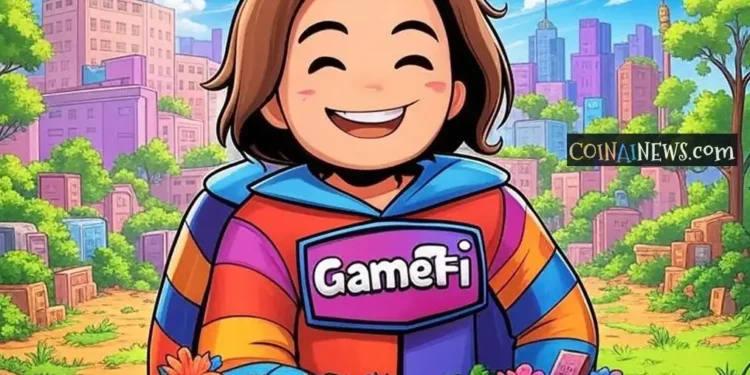GameFi: The Intersection of Gaming and Blockchain
GameFi
GameFi, a blend of ‘gaming’ and ‘finance,’ introduces a novel approach where players can earn real-world value through their in-game activities. This innovative sector leverages blockchain technology to transform traditional gaming into a financially rewarding experience.
Related articles
What is GameFi?
GameFi, often referred to as ‘play-to-earn’ gaming, allows players to earn cryptocurrencies or NFTs by participating in games. Unlike conventional gaming where in-game assets are controlled by developers, GameFi provides players with actual ownership over their digital treasures.
Blockchain’s Role in Gaming
Blockchain technology ensures that in-game items like weapons, skins, or virtual real estate are owned by players, not just rented from the game’s creators. This is achieved through NFTs, which are unique digital tokens on the blockchain that represent ownership of these assets.
The Play-to-Earn Model
The core of GameFi is the play-to-earn model where players are rewarded with tokens for their achievements, time spent, or even for simply playing. These tokens can often be exchanged for real-world money or used within the game’s economy.
Benefits of GameFi
GameFi offers several advantages over traditional gaming models:
- True Ownership: Players genuinely own their in-game assets.
- Economic Incentives: Players can earn real income, creating new opportunities for wealth generation.
- Decentralized Economy: GameFi games operate on decentralized systems, providing transparency and reducing the risk of manipulation.
Challenges Facing GameFi
Despite its potential, GameFi faces challenges:
- Market Volatility: The value of in-game assets can fluctuate with crypto markets.
- Regulatory Uncertainty: The legal landscape for GameFi is still evolving.
- Security Concerns: Blockchain games are not immune to hacks or fraud.
Future Trends in GameFi
Looking ahead, GameFi could see:
- Metaverse Integration: More games integrating with broader metaverse concepts.
- Improved Game Mechanics: As competition grows, gameplay is expected to become more engaging.
- Regulatory Clarity: Potentially more defined legal frameworks for GameFi operations.
Conclusion
GameFi represents a significant shift in the gaming industry, merging entertainment with financial opportunities. As blockchain technology matures, the potential for GameFi to revolutionize how we perceive and engage with video games is immense, offering players not just fun but also a stake in the digital economy.
FAQs
What exactly is GameFi?
GameFi stands for ‘Game Finance,’ blending traditional gaming with blockchain technology to allow players to earn real-world assets through gameplay.
How does one earn in GameFi?
Players earn by participating in games, accomplishing tasks, or owning and trading in-game assets which are often represented as NFTs.
Are there risks involved in GameFi?
Yes, including market volatility, regulatory changes, and cybersecurity threats which can impact asset values and player experience.
Can GameFi games be played without investing?
While some games allow free-to-play models, many require initial investments in NFTs or game tokens to participate fully in earning opportunities.
How is GameFi different from traditional gaming?
GameFi introduces a financial layer to gaming, where players can own, trade, or sell in-game items for real money, unlike traditional games where items have no real-world value.


